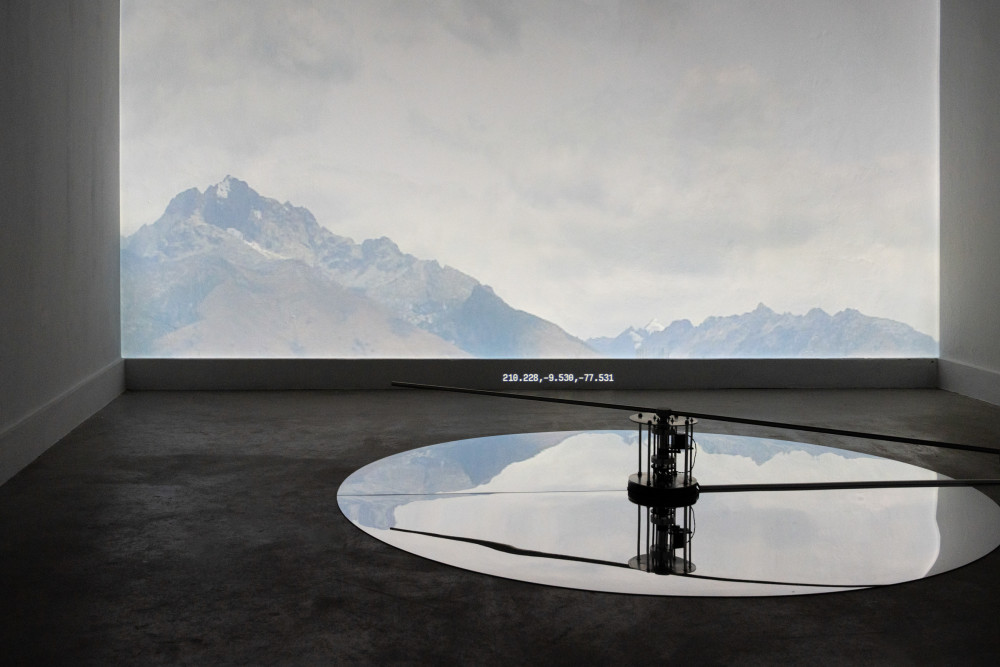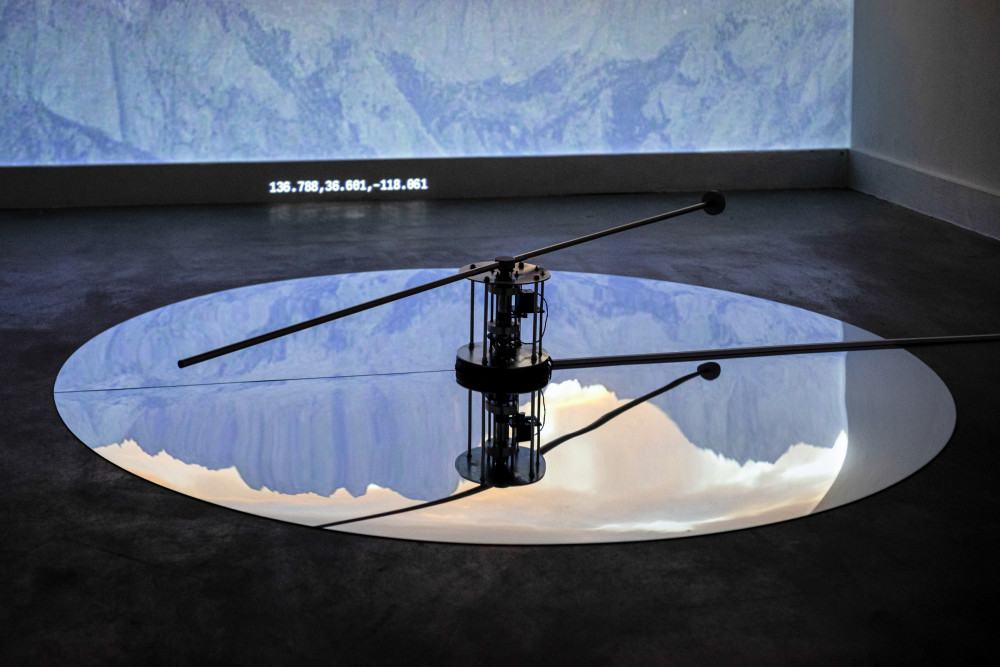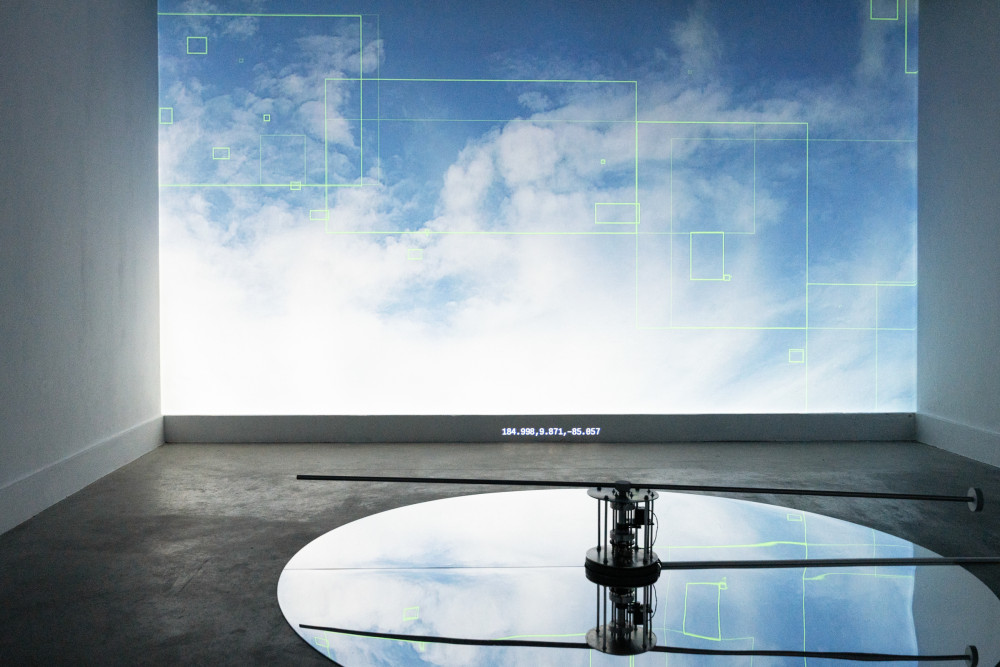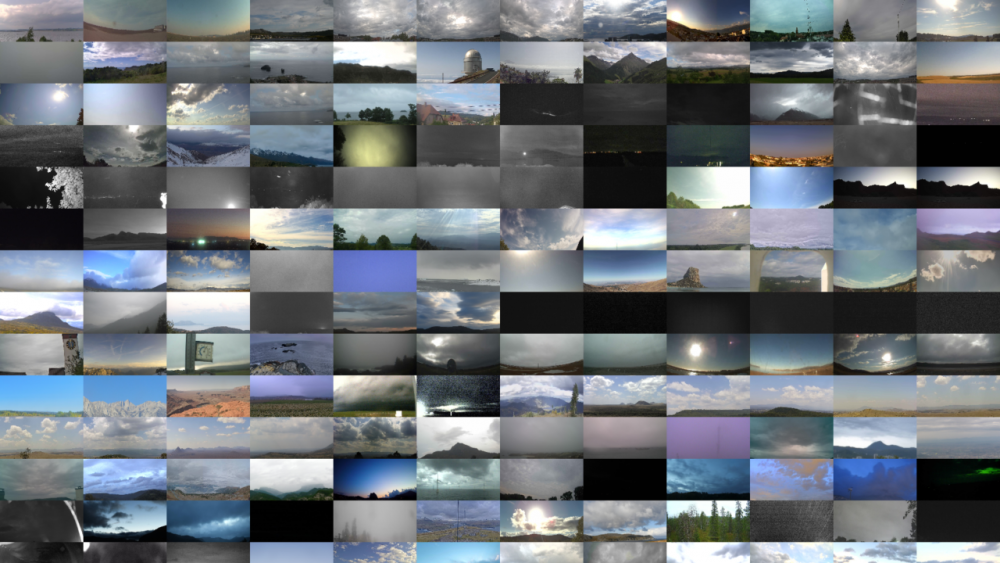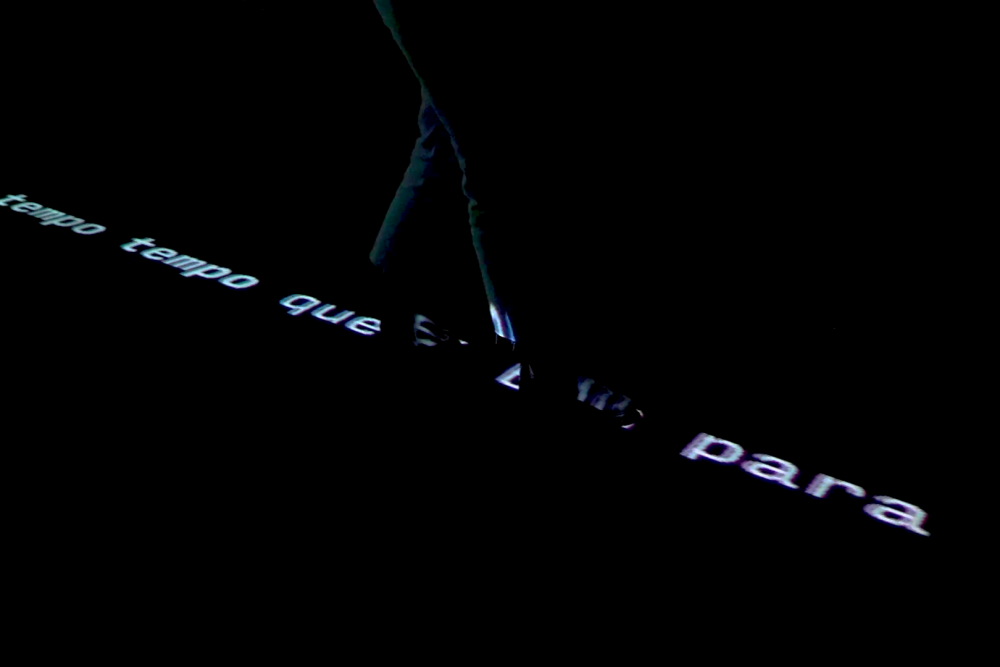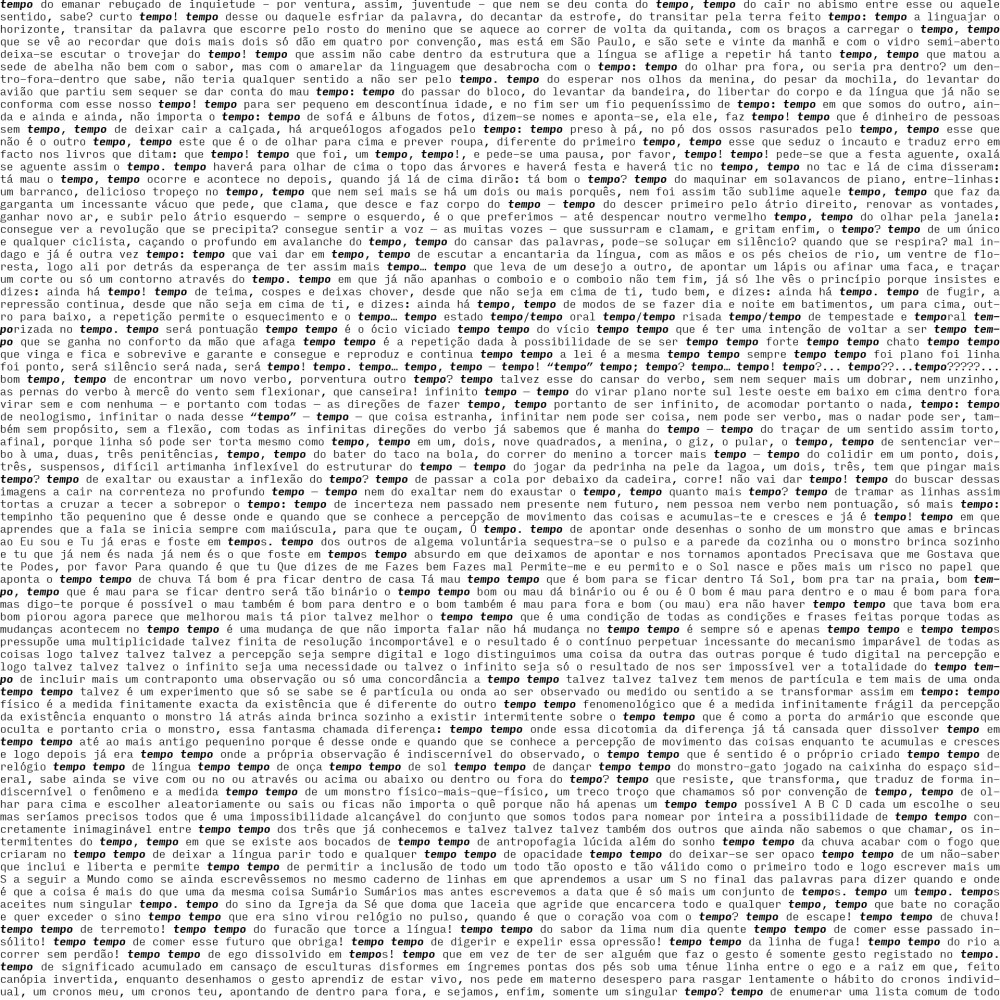In my mother tongue, Time and Weather are the same. The transmedia research project begins with the double meaning of the word tempo in Portuguese, signifying both chronological time and nonlinear weather. At present, two formulations—image and word—question this entanglement in the age of AI, large language models, and climate change.
In the installation Tempo-Imagem (Time-Image), a machine peripherally scans and archives open-access web and weather cameras that observe the world—skies, forests, glaciers, mountains, and seas—to train a local language model with real-time climate imagery and data. A computer vision algorithm detects changes in weather conditions across these streams and their probabilities. By performing this task slowly and kinetically in space, the machine critically grants human access to a typically hidden stage of unsupervised machine learning in climate models, unfolding on a cinematic scale of Earth.
In Tempo-Palavra (Time-Word), a stream of text is projected onto the floor at a fixed speed, traversing the interstice of space and bodies. The text consists of a linear dataset—a litany—of prompts for an image of time. The installation grants this timeless dataset form, speed, and light, inviting careful reading. Crafted with both diligence and a resistance to artificial automation, each entry begins and ends with a different meaning of the word tempo, navigating the verbal tenses (tempos verbais) of Brazilian and European Portuguese in search of a syntax of time in the post-digital present.
The research project speculates on a shift in the climate and more-than-human language of our times. Rooted in media art history, it follows the thread left open by La Région Centrale (Michael Snow, 1970) in search of a time-image. By shifting from the movie camera’s “center” to the “periphery” of decentralized computational capture, it moves “(…) toward an entangled vision of the world as it unfolds” (Coletta, 2023), bridging the natural-artificial divide in search of a world where many worlds fit in. As an ongoing research project, new formulations of time will continue to emerge.
